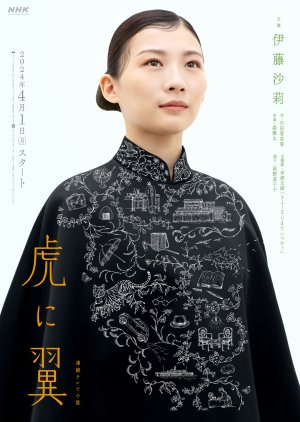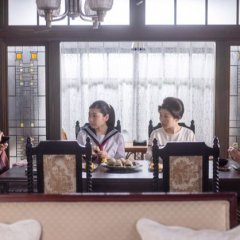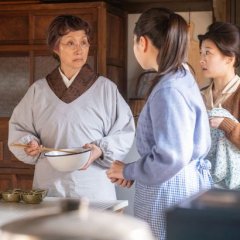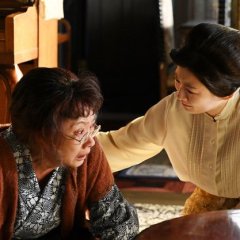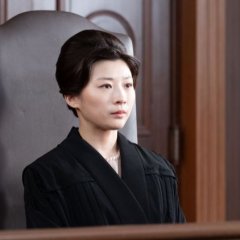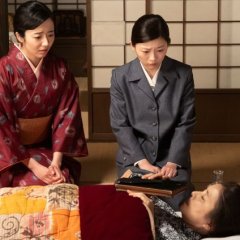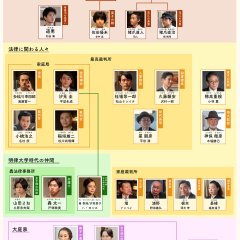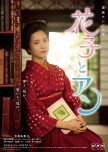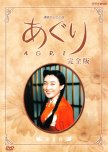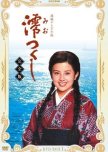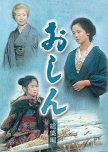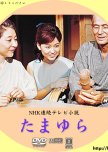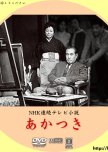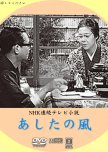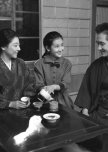- Italiano
- magyar / magyar nyelv
- עברית / עִבְרִית
- dansk
- Titolo Originale: 虎に翼
- Conosciuto Anche Come: Tiger with Wings , とらにつばさ
- Sceneggiatore: Yoshida Erika
- Generi: Storico, Legge, Vita
Cast & Ringraziamenti
- Ito SairiInotsume Tomoko / Sada Tomoko / "Torako" / "Tora-chan"Ruolo Principale
- Ishida YurikoInotsume Haru [Tomoko's mother]Ruolo di Supporto
- Okabe TakashiInotsume Naokoto [Tomoko's father]Ruolo di Supporto
- Kamikawa ShusakuInotsume Naomichi [Tomoko's older brother]Ruolo di Supporto
- Ryoki MiyamaInotsume Naoaki [Tomoko's younger brother]Ruolo di Supporto
- Morita MisatoYonetani Hanae / Inotsume Hanae [Naomichi's wife]Ruolo di Supporto
Recensioni

Questa recensione può contenere spoiler
"So long and see you again!"
I originally wrote this review after reaching the mid-point of "Tora ni Tsubasa," which is the 13th week. I've returned to rewrite this review now that the drama is over. When I finished "Tora", it became my 19th asadora. However, when I started watching it, I had only seen five. As such, my opinions on "Tora" slowly changed while being exposed more and more to the format. The ultimate result being that I was highly impressed with it by the end. This asadora really understands the format, but it feels very revolutionary in the choices that it made. "Tora" will definitely be an unforgettable asadora for anyone who watches it and I hope it becomes the first asadora for many viewers.Ito Sairi plays Inotsume Tomoko ("Tora-chan"), an aspiring lawyer during a time when the laws in Japan were very patriarchal. Ito deserves a lot of praise for playing the heroine. She was so expressive and over time it feels like you know exactly what's she's thinking just based on expressions. Tora-chan, of course, isn't the only great character in this asadora. There are countless great characters in this drama. One of the standouts is Doi Shiori playing Yamada Yone, Tomoko's friend during law school who dresses in men's clothing. She faces discrimination for her choices but chooses to stay true to herself. Ito and Doi have some nice chemistry and I'd like to see them in another drama someday. I could be here all day naming characters I liked tbh, but I'll just say that you'll probably end up loving everyone lol.
Hats off to the writer of "Tora ni Tsubasa.' That being Yoshida Erika, whom also wrote one of my fave dramas "Hana Nochi Hare." Her writing for this asadora is very tight. There are no "filler" weeks, which is common with asadora (though I'm necessarily opposed to "filler"). Also, there was not a single week that I was bored from start to finish. Almost every week actually had me crying. Not in a bad way exactly. As with most asadoras, the weeks taking place during WWII are sad and will make you cry. But, I teared up a bit at nearly every week before and after that. "Tora ni Tsubasa" seems to have this power to move you even if it's not some big event. Yoshida seems very familiar with asadora as she hits all of the usual beats. However, the way it is written feels so different from other asadora. I feel that this has the potential to appeal to a very wide audience because of that.
The themes of this asadora are women's rights (and equality for other marginalized groups are touched upon) and family. I think there can be an argument that most asadoras are feminist, but "Tora ni Tsubasa" is very explicitly so. Though it does it in such a realistic way that it doesn't feel so much in your face. It quite literally just deals with the problems women face at different stages in their lives and particularly focusing on a (still quite) patriarchal society. Thankfully, it's not all doom and gloom. The asadora clearly shows how things can slowly change which can be frustrating but these sometimes small change are still important. Now for family. Tora-chan goes through several different changes of family. I love how the drama shows essentially "blended" families learning to get along and thinking of each other.
The last thing I want to address is the music. Yonezu Kenshi's "Sayonara, Mata Itsuka" serves as the theme song. This is one of the first times I felt that the song really fit the asadora in tone and lyrics, instead of being just a pretty song to put the credits over. [Don't get me wrong, I love most asadora theme songs lol.] This was the reason I chose to put the English translation of the title as the lead-in to this review. I could listen to this song over and over. The instrumental version they put over certain scenes is also nice. A+ just for the music.
I changed my initial rating for "Tora ni Tsubasa" from a 9 to a 10. I really believe it deserves that rating. This is one of the best asadoras I've watched and I anticipate putting it very high in my asadora ranking.
Questa recensione ti è stata utile?

Why are you reading this review? Just go watch it: it's great.
It's a story about the power of hate.Or, rather, it's a story about the power of ha-te (はて), an interjection in Japanese meaning "Hmm..." or "Let me think about that...".
It's the catch-phrase of Tomoko also known as Tora-chan who is a fictionalized version of Mibuchi Yoshiko, one of the first women to pass the Japanese equivalent of the bar (three women passed at the same time) in 1938. She later became the first woman judge in Japan. Tora-chan was, thus, a lawyer in Japan before women had the right to vote, and so, in part, the series is about First Wave feminism in Japan although it touches on many other social issues as well including the wars, the judicial and legislative response to the use of nuclear weapons in Hiroshima and Nagasaki, prejudice against Koreans, the conflict between rehabilitative and retributive justice, and even conditions for LGBTQIA+ people in Japan during the span covered by the series.
Ito Sairi plays Tora-chan throughout the series from age 17 through her 60s in a role demanding a huge range from comedic to tragic to romantic to analytic but always, always, always empathetic. Ito's Tora-chan is smart (of course), routinely questioning the assumptions and presuppositions of the laws of the time but those of the broader society as well. However, she is also light-hearted and energetic. She occasionally makes mistakes, but invariably tries to listen to and learn from everyone around her even when she is the sole judge in a case. She is that same Tora-chan both at the bench and at home. The cliche is that "acting is reacting". Ito's reactions are *frequently* priceless throughout the series.
Accompanying Tora-chan along the way are the four other women in her class at law school and the women around those five who support them. They form an informal consciousness-raising collective that spans the series. They include Tora-chan's high school bestie, Hanae; a noble woman from a wealthy family, Kyoko; her servant, Tama; a Korean student, Hyang-suk; a woman fighting for the custody of her younger sons in a marriage which is falling apart, Umeko; and masc Yone. The series is not particularly a court procedural though a case or two is usually the b- or c-plot for each week. Instead, the lives of this set of classmates and friends more frequently form the basis for the main plot each week and which introduce the societal issues the series addresses.
Also, there are some men in the series.
Okay: that's a joke. Tora-chan has a couple of cishet romances and a lot of mentors who were instrumental in the formation of the post-war judiciary under the new constitution in Japan. In fact, some of the male actors give some of the best performances of the series, and I must particularly shout out Matsuyama Kenichi as Katsuraba in a surprisingly interesting role as a powerful if dyspeptic member of the judiciary who was at the center of the formation of the justice system in a tumultuous and transformative time in Japan's modern history.
The series was written by Yoshida Erika who at this point is probably best known for her award-winning anime adaptation of Botchi The Rock! But you can probably get a better sense of the kinds of issues she likes to explore in her great aro/ace live-action drama from 2022, Koisenu Futari. Any asadora is a challenge for a writer for its length, if nothing else, and the fictionalized biographies like Tora ni Tsubasa are particularly challenging since they should be true to what is known about the historical, real person while also being interesting throughout and while still covering the better part of that person's lifetime which are typically not uniformly dramatic. Yoshida triumphs against that challenge, and Tora ni Tsubasa is a fucking tour de force.
Ha-te. Let us pause to consider. The back-bone of this series is Article 14 of the Japanese Constitution of 1947: "All of the people are equal under the law and there shall be no discrimination in political, economic or social relations because of race, creed, sex, social status or family origin." What does equal under the law mean? How do the instruments of justice assist in the formation and regulation of a society? How should a judiciary live up to the ideals encoded in any constitution let alone one unilaterally bequeathed by a foreign occupier?
Faced with an unprecedented number of orphans after the war who frequently had to beg and steal to survive, one of Tora-chan's mentors, Takigawa, posits that the approach of the family courts being created to address such cases should be based on love - that the judges even in criminal cases in juvenal court should listen and strive to find the best ways to bring the strays back into the fold using whatever resources the country is able to supply at the time. And that form of being open to the possibilities of what individuals want and need, that form of love, permeates this series. Tora-chan was blessed with parents who were open to possibilities for her beyond the arranged marriage that they tried to provide for her, and she in turn is open to a similarly broad range of possibilities for her family and those whose cases she must address.
Tora-chan listens, thinks and loves. In doing so she mostly makes the lives better for the people around her. But Tora ni Tsubasa is not a hagiography. Ito's Tora-chan is never comfortable being a first. She's just a judge trying support an approach to her country's constitution which lives up to its ideals knowing full well that no judicial system can do so perfectly. She is far less interested in being a role model than in helping her family, friends and her society in general. Tora ni Tsubasa makes the case that, ultimately, that power of pausing and considering is the bedrock for Tora-chan's ability - indeed, for each of us, our own ability - to care.
It's a story about the power of love.
Questa recensione ti è stata utile?

